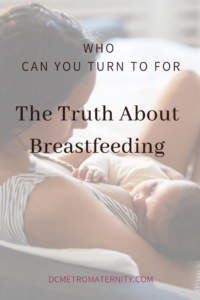We don’t talk enough about the realities of breastfeeding in the US. And it’s leaving new parents totally unprepared.
Oh sure, we encourage breastfeeding.
Hospitals have nurses trained in lactation. Many hospitals have a lactation consultant on staff to help you after you give birth to your baby. Childbirth education classes talk about the “golden hour” and first latch. We have campaigns about “freeing the nipple” and being able to breastfeed in public.
But the down and dirty, this is what it actually looks like to feed a baby from your body? Here’s what my day to day as a breastfeeding (nursing or pumping) mother looks like?
It’s like there’s a cone of silence around it.
I have a couple of theories about what might be going on, and most of them center around guilt and discomfort with how we’re actually feeding our babies.
-
Maybe it’s because, despite all of society’s good intentioned pressuring to breastfeed, and a strong start for many (83%), less than half of babies are exclusively breastfed by 3 months according to the CDC. (And we have to note that breastfeeding numbers are much lower for black mothers.)
-
Or perhaps it’s because people have been led to believe that breastfeeding is all about natural bonding. The challenges with tongue ties, mastitis and exhaustion that many families experience don’t fit that narrative.
-
Maybe it’s because so many of our clients at DC Metro Maternity work and require childcare. Returning to work makes breastfeeding complicated, what with pumping or supplementing and it’s a conversation that they’re not sure how to have.
-
And unfortunately, I think that the fact that many doctors, childcare providers, and family members aren’t familiar with what’s normal for a breastfed baby plays a part too.
Or maybe I’m wrong and everything is peachy keen. In that case, there isn’t a lot of conversation about breastfeeding because everyone is doing great.

But just in case you’re an expectant mother wondering if you’ll be able to breastfeed, or the parent of a young baby still trying to figure out how to feed them, I want you to know something during this World Breastfeeding Week:
Whatever you need to talk about related to breastfeeding, our postpartum doulas and infant feeding specialists are ready and willing to have that conversation.
For instance, there are differences between breastfeeding and formula feeding when it comes to weight gain, napping and poop. We’ve had several postpartum doula clients recently, start to question themselves because well-meaning folks suggested that something was wrong with their baby.
Also, it’s normal and natural if you sometimes want your body back, or to take a nap even if your baby wants to cluster feed.
While we’re mythbusting- exclusive pumping is exclusive breastfeeding, and don’t let anyone tell you differently.
And furthermore, any amount of breastmilk is good for your baby, so don’t stress if you need to supplement with formula at any point. Your breastfeeding still “counts”.
For the record, here at DC Metro Maternity, we support you no matter how you feed your baby. Breastmilk and formula are both good choices, and we’re experienced with both.
We just want to plant a flag during this World Breastfeeding Week to say that we’re not afraid to talk about your boobs and your baby. Breastfeeding families in DC, Maryland and Virginia know that at DC Metro Maternity, we’re here for you. Sometimes it’s hard, and it doesn’t look exactly like you planned. Or occasionally maybe you just aren’t sure what you’re doing! But regardless, we’ve got your back.
Learn more about postpartum support here!


